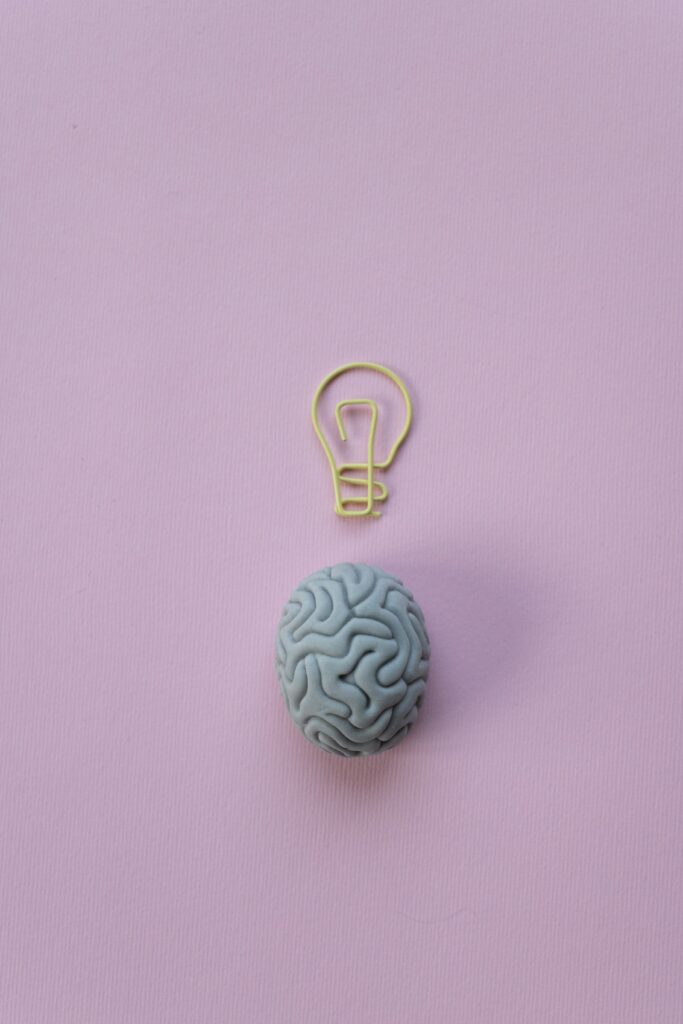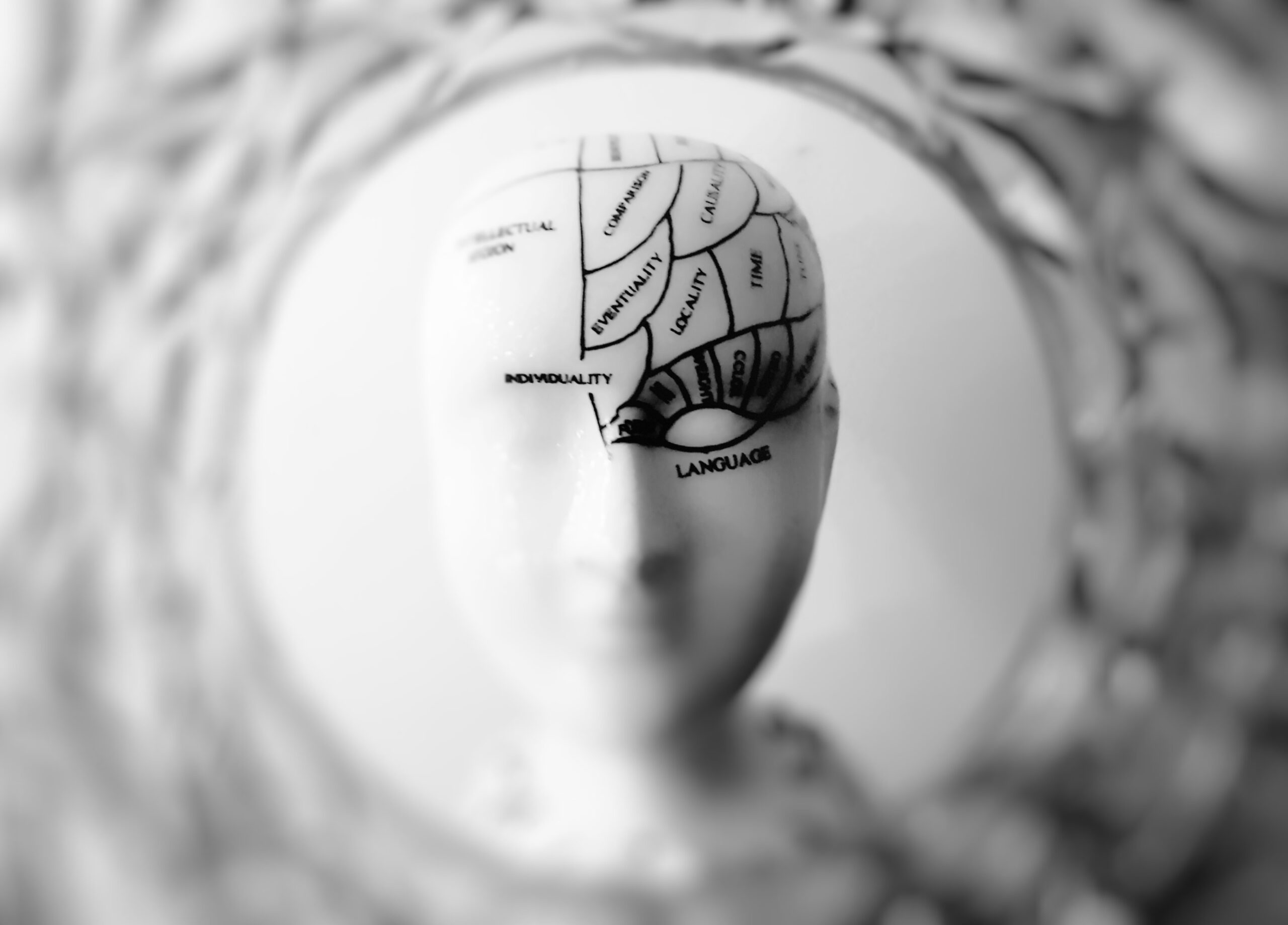7 Strategies for Maintaining Sharp Memory and Cognitive Skills in Aging
Contents
Read DISCLAIMER
Discover the 7 strategies for maintaining sharp memory and cognitive skills as you age. Insights and practical tips for promoting cognitive health and mental agility in seniors.

Introduction:
It is natural that our cognitive capacities will alter as we move through life. As we age, these changes might take on several forms. However, cognitive function may be preserved and even improved with the correct methods and routines. This in-depth post will explore seven doable strategies for preserving and enhancing cognitive function as you age gracefully.
First, we’ll look at lifestyle modifications that can significantly affect brain function. A balanced diet full of nutrients that are known to boost cognitive function, including the omega-3 fatty acids found in fish, the antioxidants found in fruits and vegetables, and whole grains for long-lasting energy, may be one way to do this. Regular exercise has also been demonstrated to improve brain health by boosting blood flow to the brain and encouraging the development of new brain cells.
We’ll then talk about the value of mental exercise in maintaining cognitive function. Playing musical instruments, solving puzzles, reading, learning new skills, and other intellectually challenging pursuits may all assist to maintain a quick and flexible mind. Neural plasticity, the brain’s capacity to change and rearrange itself in response to new experiences, is fostered and tested by these mentally taxing activities.
We will also discuss the importance of social networks for mental well-being. Sustaining robust social networks and participating in significant social exchanges can offer psychological assistance and intellectual stimulation, both of which are essential for preserving cognitive abilities as we age.
We’ll discuss how stress management practises, along with alterations in lifestyle and social interaction, contribute to maintaining cognitive health. Adopting stress-relieving techniques like yoga, deep breathing exercises, or mindfulness meditation can help shield the brain from the damaging effects of stress since chronic stress has been related to cognitive decline.
We’ll also talk about how crucial enough sleep is for maintaining cognitive function. Maintaining optimal brain health requires establishing a regular sleep schedule and developing a suitable sleep environment. Poor sleep quality and inadequate sleep have been linked to cognitive impairment.
And last, we will discuss the advantages of continuing education and mental stimulation throughout life. Constantly pursuing new information and intellectual challenges can contribute to the development of cognitive reserve, a defence against age-related cognitive loss.
These doable strategies will help you age brain healthily and lead a bright cognitive life by implementing them into your everyday routine. You may maintain and enhance your cognitive performance as you age gracefully in a number of ways, from modest lifestyle adjustments to cognitively challenging hobbies.
7 Strategies for Maintaining Sharp Memory and Cognitive Skills in Aging
Stay Physically Active
Engaging in consistent physical activity is essential for preserving and enhancing cognitive abilities as we age. Exercise of any kind, including yoga, swimming, walking, or other physical activity, causes the brain to go through a number of beneficial processes.
First off, physical activity improves blood flow to the brain. Because of the increased blood flow, brain cells receive more oxygen and nutrients, which improves their general health and functionality. Enhancing blood circulation also makes it easier for poisons and waste materials to be removed from the brain, which can help avert cognitive loss.
Additionally, consistent exercise promotes the synthesis of neurotrophic factors, including brain-derived neurotrophic factor (BDNF). The process of neurogenesis—the formation and development of new neurons—is aided by these proteins. Since neurogenesis aids in the renewal and repair of brain cells that may have been lost or injured as a result of ageing or other causes, it is especially crucial for preserving memory and cognitive function.
Furthermore, it has been demonstrated that physical exercise lowers the risk of a number of age-related illnesses, including obesity, diabetes, and cardiovascular disease, which can have an influence on cognitive health. Exercise promotes general brain health and helps shield the brain from potential harm by reducing the occurrence of certain risk factors.
Exercise provides indirect advantages for cognition in addition to its direct impact on brain function. Physical activity can elevate mood, lessen anxiety and tension, and increase the quality of sleep, all of which are linked to improved cognitive function. In addition, engaging in sports or group activity can offer chances for social connection, which is another crucial component of preserving cognitive health.
All things considered, maintaining physical activity is critical to maintaining mental sharpness and maintaining brain function as we age. Regular exercise, whether in the form of regimented exercises or just being active all day, can have a significant positive impact on your physical and emotional health.
Nourish Your Brain
Ensuring optimal cognitive performance and general brain health requires feeding your brain with a well-rounded diet high in vital nutrients. You may enhance cognitive function by include foods high in these nutrients in your diet. A number of significant nutrients have been related to brain function.
First of all, vitamins are essential for proper brain function. As an antioxidant, vitamin E, for instance, helps shield brain tissue from oxidative stress and damage. Leafy green vegetables, nuts, and seeds are good sources of vitamin E. B vitamins can improve cognitive function and are involved in the manufacture of neurotransmitters. Examples of these are folate, B6, and B12. Legumes, leafy greens, and whole grains are foods high in B vitamins.
For the health of the brain, omega-3 fatty acids are yet another necessary vitamin. Fatty fish like salmon, mackerel, and sardines are rich sources of these fatty acids, especially EPA and DHA. Due to their critical role in brain construction and function, omega-3 fatty acids may help prevent age-related cognitive decline, enhance cognitive performance, and lower the risk of neurodegenerative illnesses.
Antioxidants are substances that assist in shielding cells—including brain cells—from the harm that free radicals may inflict. Antioxidants like flavonoids and anthocyanins, which are abundant in berries like raspberries, strawberries, and blueberries, have been demonstrated to have neuroprotective properties. Dark chocolate, spinach, and vibrant veggies like tomatoes and bell peppers are other foods high in antioxidants.
A diet high in complete, nutrient-dense foods provide the energy and fundamental building blocks required for optimum brain function in addition to these particular nutrients. A diet rich in whole grains, lean meats, healthy fats, and a range of fruits and vegetables can help make sure your brain gets all the nutrients it needs to perform at its peak.
It’s crucial to remember that while some meals and minerals might promote brain health, there is no one diet or vitamin that can improve cognitive performance. Rather, concentrate on implementing a well-balanced diet including an assortment of nutrient-dense meals to provide your brain the wide range of nutrients it requires to flourish. You may maintain cognitive function, guard against cognitive decline, and advance general brain health as you age by providing your brain with a nutritious diet.

Challenge Your Mind
Maintaining and even enhancing cognitive function over time requires mentally taxing your head with mentally demanding tasks. These exercises activate several brain regions, promoting neuronal development and enhancing cognitive toughness. A closer look at a few of the stated activities is provided below:
- Reading: Reading is a great method to maintain mental clarity and activity. Reading encourages a variety of cognitive functions, such as comprehension, analysis, and critical thinking. This is true whether you’re reading a book, learning about non-fiction subjects, or staying up to date on current events. Additionally, it exposes your brain to fresh concepts and knowledge, promoting lifelong learning and mental development.
- Crossword puzzles: Word games like Sudoku, Scrabble, and word searches test your vocabulary, memory, and problem-solving abilities. Crossword puzzles are one type of word game. Filling in the holes in these puzzles calls on creative thinking, drawing connections between words and ideas, and using your working memory.
- Learning a New Language: Among the most intellectually exciting pursuits you can engage in is learning a new language. It include learning grammar principles, increasing your vocabulary, and honing your understanding and pronunciation skills. Learning a language involves several cognitive processes, such as executive function, memory, and attention, and it has been demonstrated to have long-term positive effects on brain health.
- Playing Musical Instruments: Acrobatics, focus, and coordination are necessary for playing an instrument. Playing an instrument, such as a guitar, piano, or flute, activates the right and left hemispheres of the brain as well as the regions related to memory, motor skills, and emotional expression.
You can prevent cognitive decline and develop cognitive resilience by frequently participating in these mentally taxing activities. Mental activities increase general brain function and develop neural connections, just like physical training does for muscles. Finding enjoyable hobbies that offer just the right amount of challenge is essential to maintaining mental stimulation and engagement. You can make sure you’re using a range of cognitive abilities and getting the most out of your routine for brain health by mixing up your activities.
Prioritize Quality Sleep
For the brain to operate at its best and for general wellbeing, getting enough good sleep is essential. Sleep is essential for many cognitive functions, including as learning, problem-solving, emotional control, and memory consolidation. Taking a deeper look at the reasons why sleep is critical to brain health
- Memory Consolidation: The brain absorbs and integrates recently learned material and experiences into long-term memory as you sleep. It takes this procedure, referred to as memory consolidation, to learn and remember new knowledge. Getting enough sleep makes it easier for knowledge to go from short-term to long-term memory, which improves your ability to remember and retain information.
- Brain Detoxification: The brain uses sleep as a vital period of time to eliminate waste materials that build up during the day. During sleep, the brain’s waste clearance mechanism, the lymphatic system, becomes more active. It removes toxins and metabolic wastes that, if left to build up, might impede brain function.
- Neural Plasticity: The brain’s capacity to rearrange itself and create new connections between neurons is known as neural plasticity, and sleep is essential for this process. Learning, memory formation, and adaptive behaviour all depend on this mechanism. The brain changes anatomically as we sleep, supporting the strengthening of key neuronal networks and synaptic pruning.
- Emotional Regulation: Resilience and emotional stability depend on getting enough good sleep. Lack of sleep has been connected to mood fluctuations, trouble controlling emotions, and increased irritation. Getting enough sleep improves mental health and neurotransmitter balance, which makes it easier for you to handle stress and obstacles.
It is advised to strive for 7-9 hours of good sleep per night to support brain health and overall wellbeing. The length of sleep is simply one aspect of quality sleep; other elements include sleep architecture, depth, and continuity. Better sleep quality may be achieved by focusing relaxation and stress-reduction strategies, setting up a sleep-friendly atmosphere, and following appropriate sleep hygiene practises.
You can maintain cognitive function, improve memory and learning, control your emotions, and advance general brain health by making getting enough good sleep a priority. Maintaining optimal brain function and leading a healthy, satisfying life require prioritising sleep in your daily routine.

Social Engagement
Participating in social activities is essential for preserving cognitive abilities and advancing general brain health. There are many mental and emotional advantages to interacting with people and engaging in social activities. Here’s a closer look at the ways in which social interaction enhances cognitive function:
- Stimulation of Cognitive Abilities: Having talks, arguments, and disputes enhances the mind’s ability to pay attention, remember things, speak, and solve problems. Social interactions put the brain to the test in terms of information processing, decision-making, and efficient communication. This strengthens and exercises cognitive capacities.Participating in social activities is essential for preserving cognitive abilities and advancing general brain health. There are many mental and emotional advantages to interacting with people and engaging in social activities. Here’s a closer look at the ways in which social interaction enhances cognitive function:
- Emotional Well-Being: Participating in social activities creates a sense of community and emotional support, both of which are critical to mental health and wellbeing. Social interaction with friends, family, and neighbours can help lessen emotions of despair, anxiety, and loneliness—all of which have a detrimental effect on one’s ability to think clearly. Happiness and satisfaction are linked to the production of neurotransmitters like serotonin and oxytocin, which are facilitated by positive social interactions.
- Increased Neural Plasticity: The brain’s capacity to change and rearrange itself in response to events has been connected to social interaction. Social interaction and exposure to other viewpoints promote the growth of new brain connections as well as the reinforcement of preexisting ones, so enhancing cognitive flexibility and creativity.
- Cognitive Reserve: Social interaction has a role in the idea of cognitive reserve, which describes the brain’s capacity to sustain regular cognitive function in the face of ageing or brain injury. Engaging in intellectual, social, and interpersonal activities throughout life helps to develop cognitive reserve, which acts as a protective barrier against neurodegenerative disorders and cognitive decline.
Group talks, team sports, volunteer work in the community, going to social events and get-togethers, and spending time with loved ones are a few examples of social activities that enhance cognitive function. In addition to offering cognitive stimulation, these activities present chances for growth, learning, and personal development.
In conclusion, social interaction is critical to preserving mental health generally, fostering emotional stability, and preserving cognitive performance. Engaging in social activities and fostering significant connections helps improve cognitive function, develop cognitive reserve, and lead a happy and satisfying life.
Manage Stress
Maintaining cognitive function and advancing general brain health depend on effective stress management. Prolonged stress can negatively impact cognitive functions in the brain, including memory, attention, and decision-making. The following are some ways that practising relaxation methods like deep breathing, meditation, and mindfulness can lower stress and promote brain health:
- Stress Reduction: Deep breathing, mindfulness, and meditation are a few relaxation techniques that work well to lower stress levels. By triggering the body’s relaxation response, these techniques mitigate the physiological impacts of stress, including raised blood pressure, heart rate, and cortisol levels. These methods induce a state of tranquilly and relaxation, which helps to reduce symptoms associated with stress and enhance general wellbeing.
- Neuroplasticity: Prolonged stress can have a deleterious effect on the structure and function of the brain, causing the areas responsible for memory and cognition to shrink. On the other hand, it has been demonstrated that relaxing methods enhance neuroplasticity, or the brain’s capacity to rearrange and adapt in response to events. Regular relaxation training can boost cognitive performance and maintain brain health by counteracting the damaging effects of stress on the brain.
- Emotional Regulation: Anger, irritation, and worry are common unpleasant feelings brought on by stress, and these emotions can worsen cognitive impairment. People can learn to identify and control their emotions more skillfully by practising mindfulness and emotional awareness through relaxation techniques. Stress has less of an effect on cognitive performance when emotional regulation skills are improved and psychological resilience is encouraged in the face of stressors.
- Better Sleep Quality: Insomnia and other sleep disorders including poor sleep quality are frequently brought on by chronic stress. Before going to bed, people can improve their quality of sleep by adopting relaxation methods to help them unwind and reduce worry. Thus, better sleep promotes memory consolidation, cognitive performance, and general brain health.
- Improved Cognitive Function: Studies indicate that consistent application of relaxation methods might result in increases in working memory, attention, and focus. These methods enhance brain function and support optimal cognitive performance in daily activities and tasks by lowering stress and encouraging relaxation.
Deep breathing exercises, mindfulness exercises, and other relaxation techniques may have a significant positive impact on your physical and mental health when included into your regular routine. You may improve cognitive performance, maintain brain health, and live a better quality of life by actively controlling your stress and encouraging relaxation.
Stay Curious and Learn Continuously
Promoting cognitive growth and protecting brain health requires a lifetime commitment to learning and a state of curiosity. Developing an inquisitive mindset inspires people to explore new things, interact with concepts that are unfamiliar to them, and push their intellectual limits. This is how ongoing education aids in the development of cognition:
- Neuroplasticity: This is the extraordinary capacity of the brain to restructure and adapt in response to novel experiences and knowledge. By energising brain circuits, creating new connections between neurons, and strengthening already-existing synapses, ongoing learning promotes neuroplasticity. Cognitive abilities including creativity, problem-solving, and remembering are improved by this procedure.
- Cognitive Reserve: contributes to the development of cognitive reserve, which is the brain’s resistance to aging-related changes and cognitive loss. People can develop a cognitive reserve that acts as a defence against cognitive decline and neurodegenerative disorders by consistently pushing their minds intellectually. Higher educated and intellectually engaged people have been found to have larger cognitive reserve and to be less vulnerable to cognitive loss as they age.
- Stimulation of Curiosity: Learning and intellectual inquiry are propelled forward by curiosity. People are more inclined to look for new knowledge, ask questions, and explore learning opportunities when they are encouraged to have an inquisitive mentality. Dopamine is a neurotransmitter linked to motivation and reward that is released in response to curiosity, which in turn promotes participation in educational activities.
- Diverse Learning Opportunities: There are several ways to learn continuously, including informal learning through interests, reading, and hands-on activities, as well as formal schooling and organised courses. People may increase their knowledge base, learn new skills, and obtain new insights into the world by investigating a wide range of subjects and fields. This exposure to a variety of stimuli enhances cognitive performance and fosters intellectual development.
- Lifelong Engagement: Learning goes beyond official schooling and is a process that lasts a lifetime. A lifelong learning mentality inspires people to maintain their curiosity and intellectual engagement throughout their lifetimes. Participating in educational activities such as attending lectures, joining discussion groups, or following personal interests and hobbies can provide a feeling of purpose and fulfilment, which in turn enhances cognitive vigour and general well-being.
To sum up, fostering cognitive development, preserving brain health, and improving general quality of life all depend on remaining interested and accepting lifelong learning. Through the development of a lifelong learning attitude and proactive pursuit of intellectual growth chances, people may leverage the transformational potential of curiosity to enhance their cognitive capacities and broaden their horizons throughout their lives.
FAQs (Frequently Asked Questions)
Can cognitive deterioration be stopped?
While a complete reversal of cognitive decline may not be attainable, it is possible to slow it down and enhance cognitive performance by adopting healthy habits and techniques.
Is social connection crucial for maintaining brain health?
Yes, social involvement promotes brain stimulation and improves general cognitive health.
What effects does exercise have on cognitive function?
Exercise improves cognitive performance, boosts blood flow to the brain, and encourages the creation of new neurons.
Can brain-boosting vitamins be of assistance?
Before utilizing supplements, speak with a healthcare provider. The key to cognitive health is a balanced diet and an active lifestyle.
Are brain-training apps successful?
Although they may have some cognitive advantages, their efficacy varies. It is advised to partake in a range of cognitively stimulating activities.
What part does sleep play in strengthening memories?
The brain processes and consolidates memories as you sleep, which helps your cognitive performance.
Conclusion:
To sum up, becoming older need not be accompanied with a loss of cognitive function. People may sustain a keen memory, improve cognitive function, and enjoy a full and active life by taking a proactive approach to brain health. This essay presents a thorough framework for optimising mental agility and fostering cognitive health as we age, comprising seven professional practises.
People may foster a lifetime of cognitive well-being and give priority to brain health by adopting these expert practises into their daily lives. People may age with elegance, confidence, and vitality by adopting a complete approach that includes exercise, diet, mental stimulation, sleep, social contact, stress management, and continuing learning. Prioritizing brain health makes it possible for people to maintain a happy and meaningful cognitive existence far into old age.

